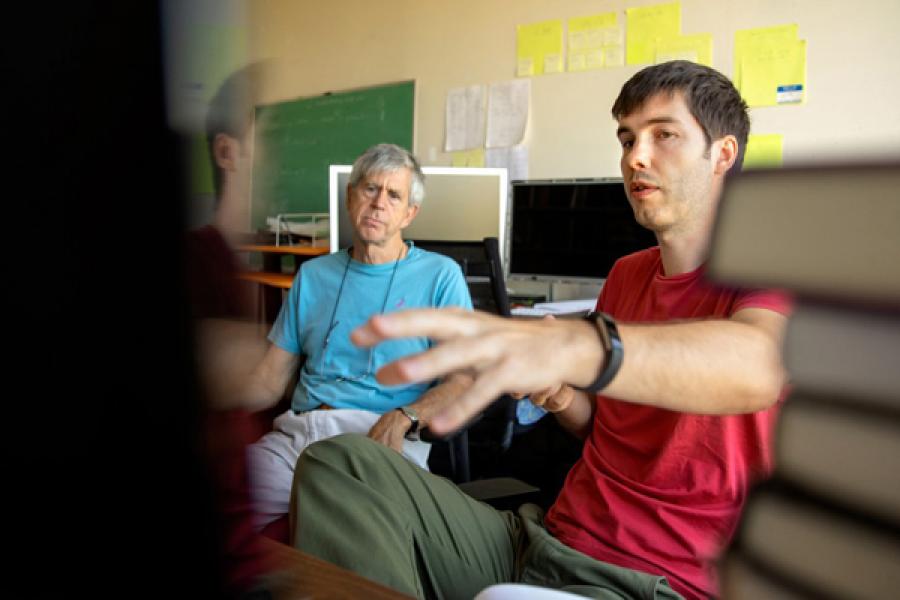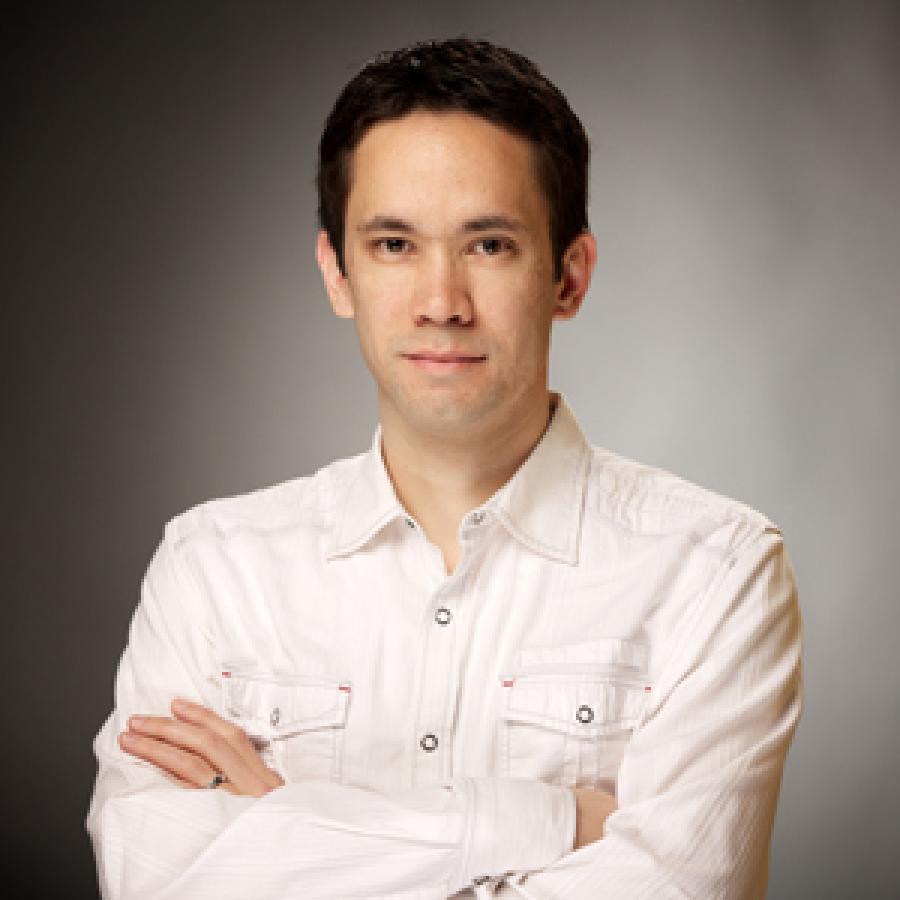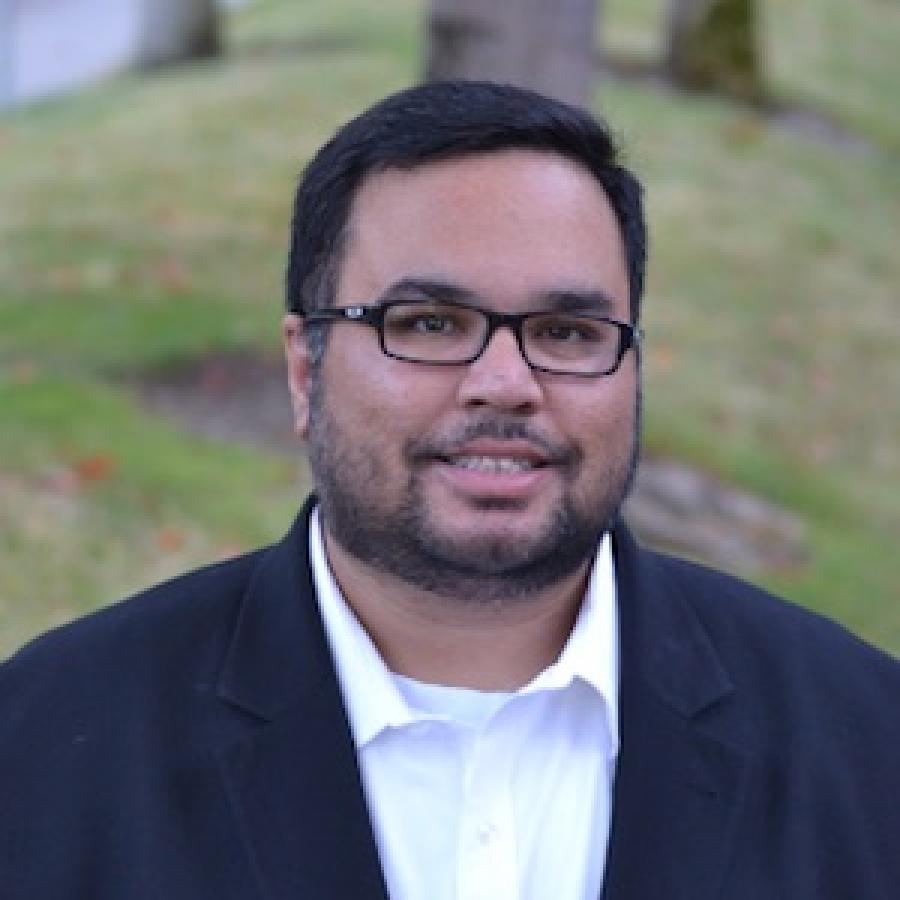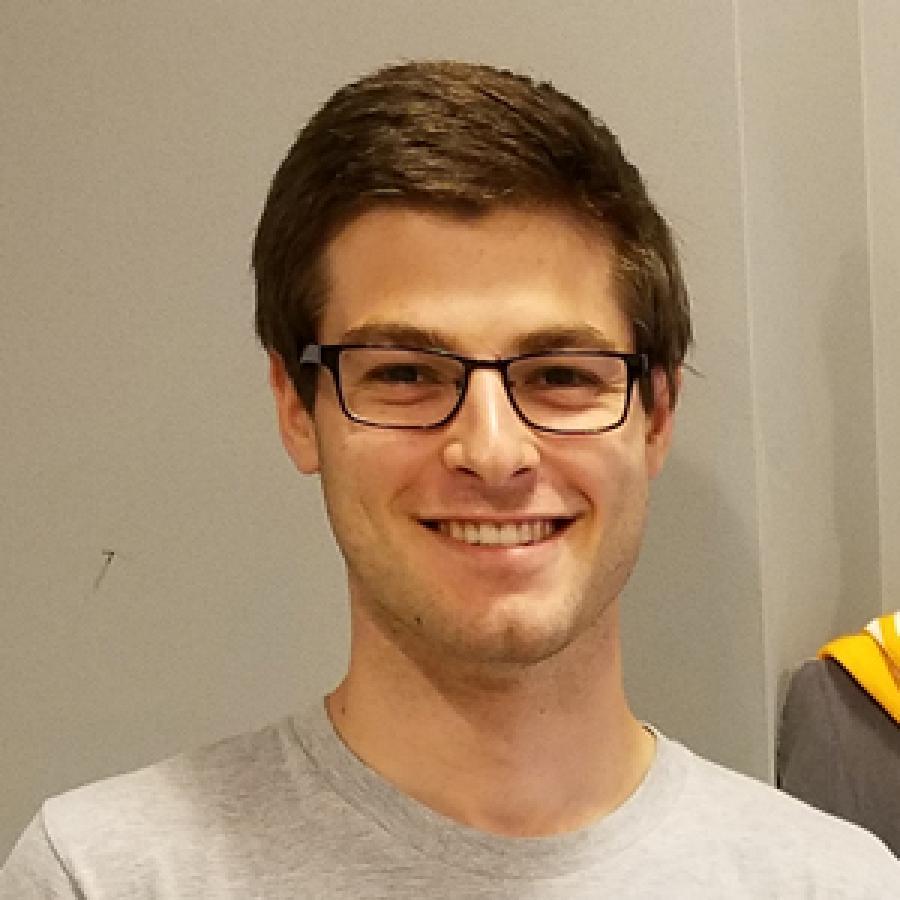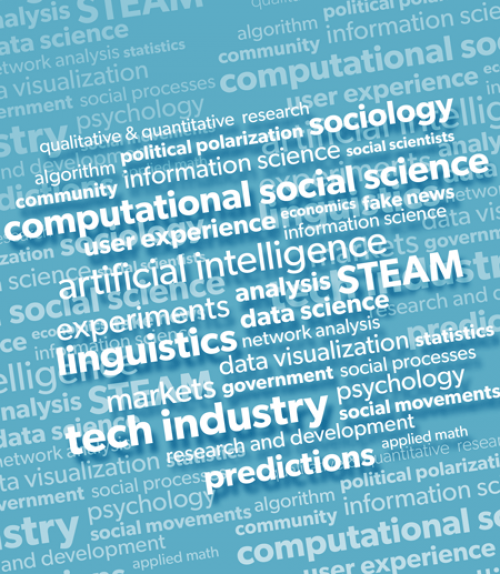Graduate and undergraduate students from Cornell’s social sciences fields are increasingly sought after by tech companies, who are searching for employees who understand social processes, psychology, sociology and economics, but also have real-world data science skills.
“Not only do social scientists have training in network analysis, but tech companies are interested in things like community, identity, political polarization and fake news, and they realize that social scientists are more likely to be exposed to the most important research coming out about topics like these,” said Michael Macy, Goldwin Smith Professor of Arts and Sciences in sociology and director of the Social Dynamics Laboratory.
Professors from social sciences departments throughout the College of Arts & Sciences say they’ve noticed a trend for their students to head into these careers.
For some tech companies, the move to hire social scientists is a reaction to public pressure.
“Given the role that social media companies seem to be playing in politics, unintentionally, the need for social scientists is even more acute,” said Kim Weeden, the Jan Rock Zubrow ’77 Professor of the Social Sciences and director of the Center for the Study of Inequality. “It’s become an important job market for our students.”
It’s easy to find press coverage about tech’s search for a more diverse workforce. This Fast Company piece by a startup CEO makes the case for “STEAM” over “STEM” hiring. Venture Capitalist Scott Hartley’s bestseller “The Fuzzie and the Techie,” which refers to monikers used at Stanford, included a list of major tech CEOs and their liberal arts and social science majors.
And in “The Future Computed,” a book out this year from Brad Smith, President and Chief Legal Officer, and Harry Shum, Executive Vice President of Microsoft AI and Research Group say “skilling-up for an AI-powered world involves more than science, technology, engineering and math. As computers behave more like humans, the social sciences and humanities will become even more important.”
Tom Lento PhD '11Tom Lento, PhD ’11 in sociology, was on the early side of social science grads heading into tech. He secured an internship with Microsoft Research as a student in 2005, which piqued his interest in a career in tech, then he took a job with Facebook as a data scientist in 2008, while he was still a doctoral student. Today, he’s a software engineer at Facebook working on internal software.
“Facebook is all about how we build communities,” he said. “Even building internal systems, my social science background comes into play in understanding how people interact with each other.”
Lento has noticed changes in the workforce since his entry in 2005.
“When I was at Microsoft, it was a diverse group but largely slanted toward tech,” he said. “That’s changing today. You see more psychology and sociology majors or computer scientists with a sociology background. Schools like Cornell are very helpful in that regard because, by design, they are cross-disciplinary in nature.”
Linguists help companies communicate
For students in areas such as linguistics, the tech hiring boom is real.
“A subset of our grad students is technically oriented from the beginning, but also a lot come in as linguists and then end up getting jobs in R&D,” said linguistics Professor Mats Rooth. “The main factor is the multiplication in the number of companies that have significant research and development efforts in AI (artificial intelligence), speech science and data science.”
Christopher Sundita MA '15Christopher Sundita MA ’15 says he uses his linguistics and language skills daily as an associate product manager and senior search evaluation analyst at WalmartLabs.
“We're looking at what customers type into the search box and the results they're getting to make sure they're getting the best search experience," Sundita said. “We’re also testing new features from our engineers using qualitative and quantitative methods to determine the quality of the new feature or algorithm before it goes live.”
Sundita said the majority of his former team at Yahoo and his current team at Walmart Labs has included non-STEM folks - music, history, journalism and linguistics majors. He’s taught himself the SQL programming language and how to use computer scripts, but doesn’t know hard core computer programming, he said, rather relying on the engineers and developers within WalmartLabs for that work.
Linguists are also in high demand in companies focused on the user experience and voice recognition, said Sundita. “The Alexa team has been hiring linguists like crazy.”
According to Sundita, the tech world is realizing the importance of a new definition of diversity – that of fields of study. “People with the same background tend to look at things in the same way, but they might not consider the perceptions of people from different backgrounds,” he said.
Making sense of the data
The move for tech companies to expand their workforce was a long time coming, said Weeden. “These companies have been collecting this data without people who have the background in social science to know what questions to ask or the technical skills to be able to analyze it and help make sense of it,” she said. “At the same time, they are trying to open up new markets, and social scientists can give them more insight into the culture and context of these new markets.”
While social science undergrads aren’t required to take a host of statistics or data sciences classes, many social science courses combine the study of literature on a topic with skills to analyze data related to that topic, Weeden said. And many students choose to take data-focused courses or join research projects where they can hone their data skills.
The new “Data Science for All” course offered this spring used the tools of computer science and statistics to help students from any field explore and visualize data, make predictions based on data and assess the quality of those predictions. The course, offered by Computer Science, Operations Research and Information Engineering (ORIE) and the Department of Statistical Science, will be taught again in the spring of 2019.
Interest in information science and computer science continues to climb every year at Cornell. In the College of Arts & Sciences, there were 18 graduating CS majors in 2007, but 90 in 2017; the information science major grew from 14 in 2007 to 43 in 2017. Many of these students also double major in another field. Across the colleges, the number of students minoring in information science climbed from 23 in 2016 to an expected 50 minors in 2019.
The introductory courses in computer and information science are also some of the most popular on campus, with a record-breaking 800 students signed up for CS1110 this fall. Department planners are reserving the largest rooms on campus for CS and IS courses so they don’t have to turn students away, said Megan Gatch, course coordinator for the computer science department.
“Students are realizing that information science is a great field for people who don’t want to go quite as technical as computer science, but who do want an anchoring in social phenomena,” Macy said.
Macy’s lab is a popular place for students wanting to work in computational social science. The lab uses computational models, laboratory experiments with human subjects, and digital traces from online networks to look for elementary principles of human behavior and social interaction and address puzzles about social order and conflict. Students in the lab have backgrounds in sociology, information science, applied math, government, and psychology, among other fields, he said.
The role of data science in elections
Sociology PhD student Thomas Davidson, a member of Macy’s lab, and undergrad Matt Lehman ’19 both spent the summer of 2018 at tech firms, working on projects related to the role of big data in elections.
Davidson, whose thesis focuses on interactions between political parties, social movements and their supporters on Facebook, joined a team in Facebook’s internship program working on election integrity issues.
“We’re working to help keep elections safe and prevent bad actors from using misinformation to undermine the democratic process,” Davidson said.
His sociology background has given him a good understanding of the theories and mechanisms of social science, but also of methods to study social life scientifically, he said.
“In my specific area of computational social science, I draw upon techniques from social science and from computer science, giving me the theories, methods, and tools to analyze the types of complex data that tech companies rely upon,” Davidson said. “I think computational social scientists are going to be in high demand as tech companies and other businesses recognize the value that the combination of social science expertise with computational methods can bring to them.”
Matt Lehman '19Lehman, a government and statistics double major, worked in Washington, D.C. with Civis Analytics, a company that helps its clients use data to reach customers or, in some cases, voters. The company works for commercial clients as well as political candidates and campaigns. Its founder is Dan Wagner, who served as chief analytics officer for Barack Obama's 2012 re-election campaign.
Lehman is working on various projects: helping one client determine the most effective ways to spend money to reach voters, and helping another build a system to look at different metrics to gauge how Senate and Congressional campaigns are going. He’s also working on improving Civis Analytics’ modeling systems, using publicly available data in addition to the data the company collects.
Lehman said he’s gaining useful skills, creating clear and useful data visualizations and interactive applications.
“I like government and politics, but I also like looking at things from a more analytical and numerical perspective,” Lehman said. “Working here, I’ve learned what data is important in a political campaign and how to prioritize that data.”
Facebook’s Lento encourages social scientists with interests in tech to learn at least the basics of coding. “There were a lot of skills I gained during the graduate program that have helped me: knowing how to construct a research program, how to frame a question, how to develop reasonable hypotheses and go about testing them,” he said. He also had extensive data skills and a background in statistics, but he had to teach himself Java, Python, SQL and map/reduce on the job.
“You don’t have to be good at it, but you should learn how to write code, learn some SQL so you can talk to databases and learn a language like Python,” he said. “You have to be willing to jump in and be wrong a lot in order to eventually get things to work the way you want them to.”
A version of this story also appeared in the Cornell Chronicle.
